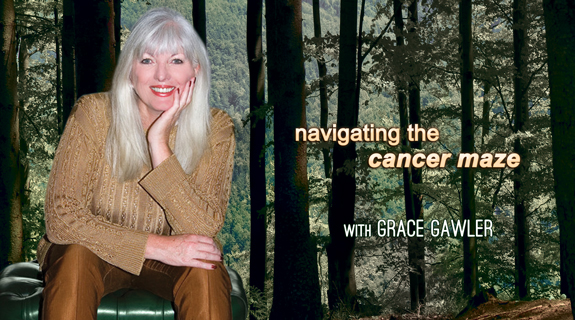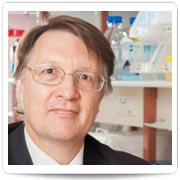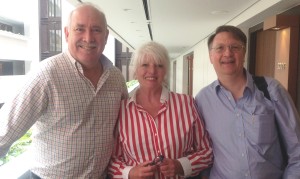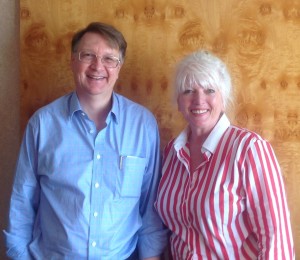Every week, some 160,000 people die of advanced cancer around the world, despite our best attempts at cancer treatment globally. Some $32 billion is being spent on oncology drugs and the USA National Cancer Institute/ NIH spends about $5.2 billion on cancer research, per annum. Sadly, cancer has remained a tremendously costly public health problem of major proportions for over 5 decades, and our progress has been confoundingly slow towards solving this using standard methods.
On today’s show, Navigating the Cancer Maze, my guest Professor Brendon Coventry, an Adelaide-based oncology surgeon suggests there may be another way to approach the problem and shows that the immune system my hold the answer. With a special interest in Melanoma Surgery, he is a clinical researcher whose interests include anti-tumour immune response in human malignancies, tumour Immunology and cancer vaccine treatments.
His group’s research paper, published in 2014, entitled âVaccinia Melanoma Cell Lysate Vaccine (VMCL) Trial for treatment of advanced Stage IV Melanoma with and without Chemotherapyâ, captured the attention of medical and scientific community. Trial conclusions reported high complete response rates (where all cancer disappears) of 17%, with useful clinical responses occurring in nearly 80% of patients overall (slowing the disease), and over 15% of patients experiencing survivals past 5-years, with essentially no toxicity. The longest survivor now remains alive for over 14 years. These response rates and survivals are unusual for advanced melanoma. The researchers reason that the repetitive and prolonged delivery of the vaccine therapy might hold part of the clue, because this was a strikingly different approach to that used in other trials.
Prof Coventry with colleague Martin Ashdown, have now developed a remarkable understanding of how the human immune system continuously oscillates in a dynamic fashion. The timing of ‘when’ the therapy dose is precisely delivered in synchrony with each individual patient’s own immune system waveform or cycle might hold the very key to improving cancer treatment, thus leading to better survival.
ABOUT: Professor Brendon Coventry â BMBS, PhD, FRACS, FACS, FRSM Prof Coventry is an Associate Professor of Surgery at the University of Adelaide and Senior Consultant Surgeon (General, Breast-Endocrine,
Surgical Oncology & Trauma Surgery) at the Royal Adelaide Hospital since 1993. He holds a PhD in cancer immunology.
Positions:
⢠Immediate Past Chairman, Surgical Oncology Section, Royal Australasian College of Surgeons;
⢠Research Director, Australian Melanoma Research Foundation & Board Member;
⢠Past Chairman, Melanoma and Skin Cancer Group, Clinical Oncological Society of Australia;
⢠Foundation Chairman, Multidisciplinary Melanoma Management Group, Royal Adelaide Hospital
⢠Senior Examiner, Australian Medical Council
⢠Board Member of Cancer Care Centre, Unley
Fellowships:
⢠Royal Australasian College of Surgeons,
⢠American College of Surgeons
⢠Royal Society of Medicine.
Research:
⢠Over 85 journal publications; including New England Journal of Medicine, British Journal of Cancer, Journal of Clinical Oncology, Lancet Oncology; widely published topics including surgical treatment for melanoma and breast cancer, sentinel node surgery, sarcoma surgery, adjuvant radiation therapy, melanoma vaccine therapies, laparoscopic spleen surgery techniques, neuroscience, microscopic methods, high-sensitivity tissue immunochemistry, public health, medical education, internet learning.
⢠NIH Principal Investigator: Multicenter Selective Lymphadenectomy Trial (MSLT-I) surgical sentinel node; C-Vax melanoma vaccine studies (x2).
⢠Editor-in-Chief, 7-Volume international textbook series “Surgery: Complications, Risks and Consequences” published by Springer; general adult, paediatric and cardio-vascular surgery. Current Research:
⢠Surgical Complications, Safety and Quality improvement
⢠Vaccine Therapies for Advanced Melanoma, novel findings from repetitive dosing where 5-year survival and Complete Response rates have been significantly improved
⢠Timing of Therapies is novel collaborative work with Martin Ashdown concerning serial blood biomarker monitoring for advanced cancer patients for more accurate timing to improve therapy dose delivery and clinical efficacy further, which is gaining recognition
Hear Professor Coventry interviewed by Navigating the Cancer Maze host Grace Gawler this Friday USA PST 12 noon at Voice America’s Health and Wellness Channel. Resources from the show can be accessed at Grace Gawler MediaÂ








